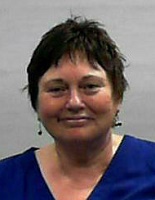SIG on Complexities in Health report

Submitted by convenor: A/Prof Carmel Mary Martin (Australia)
Join our SIG
Complexity sciences is increasingly recognized to provide the mental framework as the research methodologies to deal with the “messy problems” facing health care and general and general practice/family medicine/primary care in particular. The notions of complexity remain difficult in the linear mindset in which especially young doctors are being trained and have to survive in their postgraduate education programs.
More here
The WONCA SIG on Complexities in Health has successfully promoted complexity thinking and research in regional and world meetings with many young researchers integrating this into their local work. The SIG is slowly edging towards reaching a critical mass that will require the implementation of a complexity stream in meetings and a representation in the organization’s formal structures.
Of particular note, many of the WONCA SIG members regularly publish systems and complexity science informed papers in peer-reviewed journals.
Recent WONCA-SIG activities
The WONCA world meeting at Seoul
There was considerable interest in the Special Interest Group, notably in the areas of whole person-care, social determinants of health, networks and big data, integrated care and unstable health journeys and potentially avoidable hospitalizations. Members presented on these topics.
WONCA Europe meeting in 2018
Similar presentations were from Australia, Germany, Switzerland.
Plans/hopes for the WONCA SIG Complexity in Health?
Our vision is to continue to centre care on dynamic systems that represent changes in health experiences including pain into health systems design and evaluation. We are highly supportive of others who have the courage to work with new methodologies and new ideas.
Our SIG would like to engage and link WONCA members who are working on transforming overly simple silos of disease management into care networks that can address multimorbidity which encompasses physical, biopsychosocial, spiritual and environmental influences. Artificial Intelligence, deep learning are part of this transformation which is occurring internationally with learning systems including IT.
Links with other organisations and networks
The North American Primary Care Research Group (NAPCRG), with the Society of Teachers of Family Medicine (STFM), is also addressing these issues. NAPCRG released the following:
Revitalizing generalist practice: the Montreal statement. There is an overlapping membership between NAPCRG and WONCA SIGs. Many of the tools developed are available on the
STFM website.
Currently, a workshop is being prepared for the next NAPCRG convention with an updating of selected resource materials. In this process materials will be updated in a more user friendly manner for every day practice.
International Society for Systems and Complexity Sciences for Health - Joachim Sturmberg has become the Foundation Chair. The fourth Annual meeting is being held in Knoxville, Tennessee, USA with a strong primary care theme.
International Society for Integrated Care (ICIC). While multifaceted, the ICIC has a stream of complexity science and input into WONCA Europe.